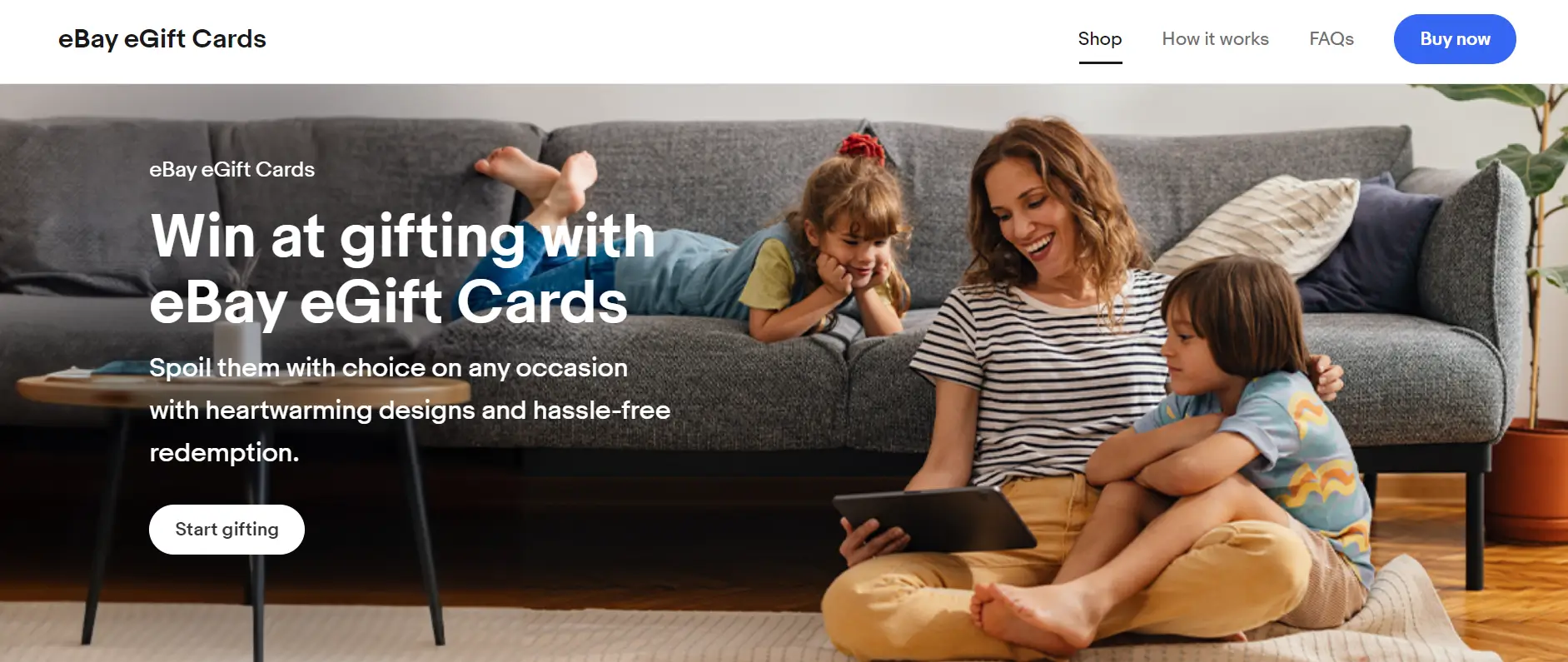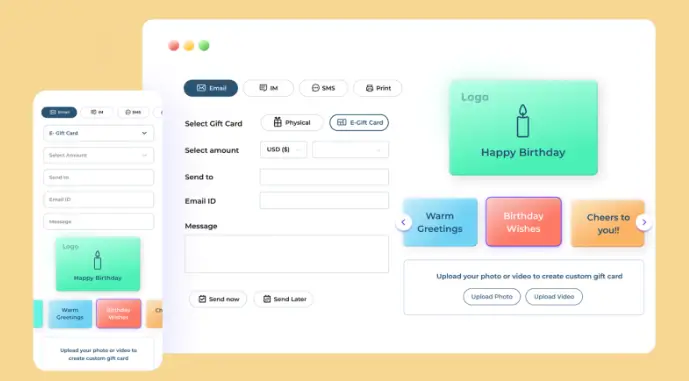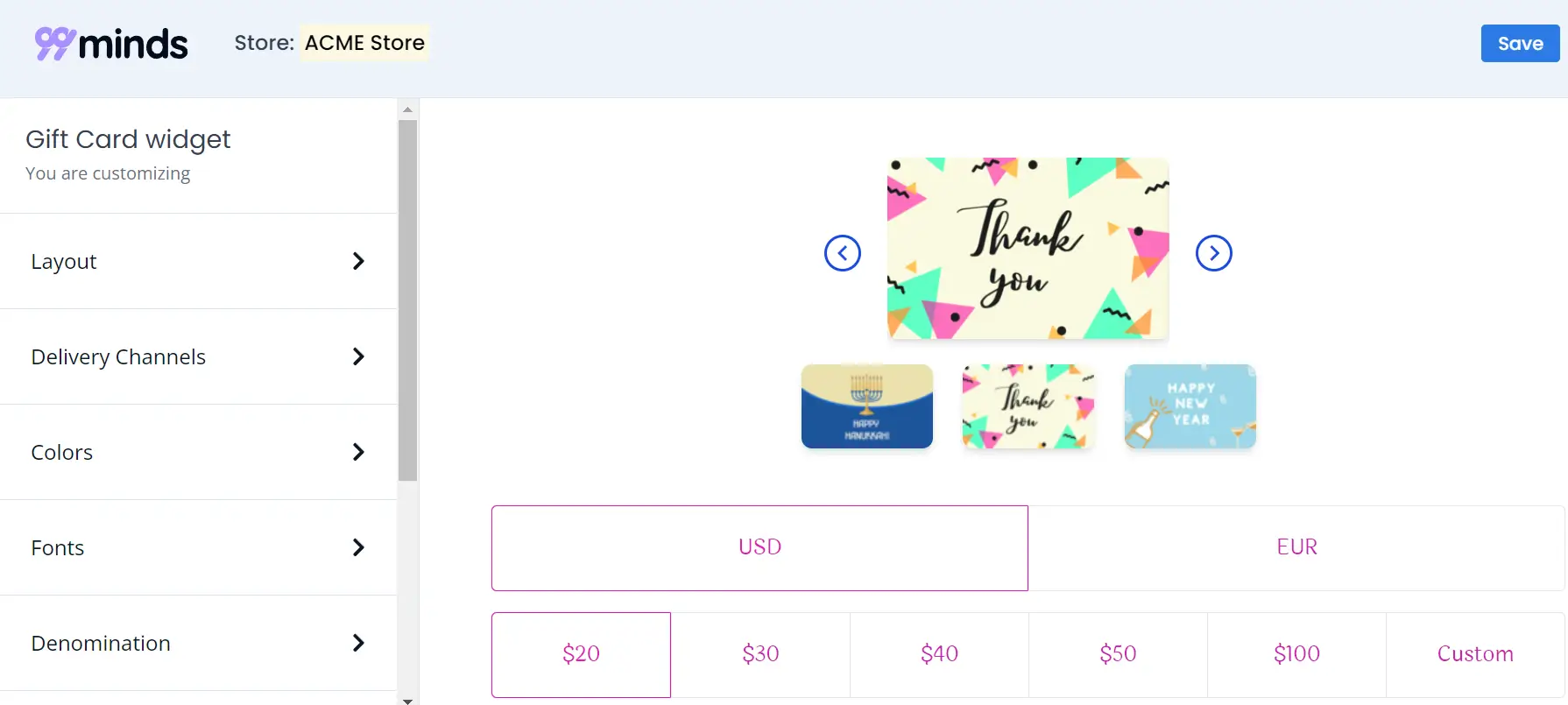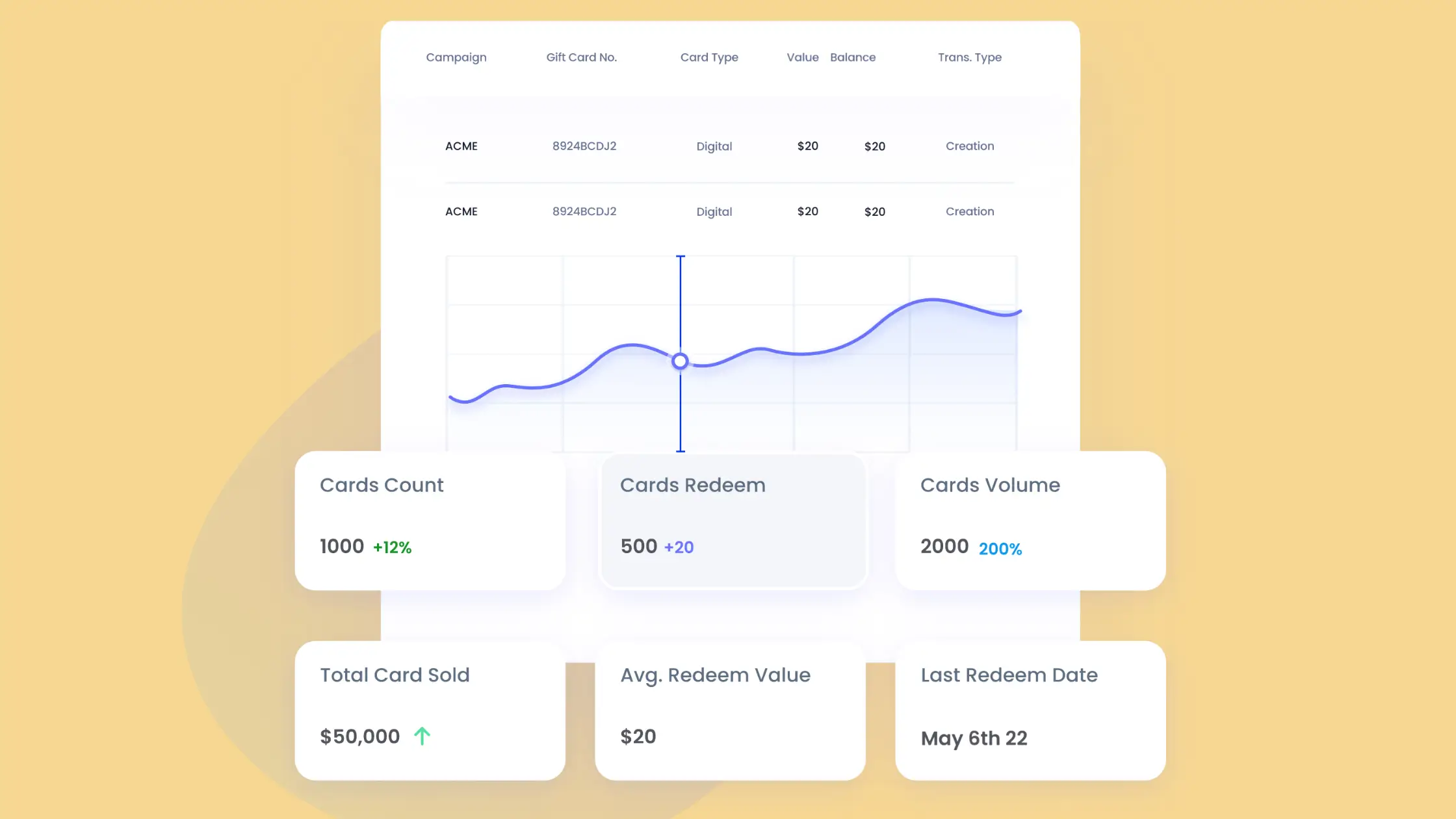
Piyush

Unfortunately, many honest customers get conned by scammers who steal their personal information and money. During the holiday season, it is important to be vigilant about everything you purchase, from devices to gift cards, to avoid falling victim to gift card scam.
No one wants to be scammed, especially during the holiday season, as it is a different kind of a bummer. More often than not, fraudsters are a step ahead of the law enforcement agencies. The onus is on you as a customer to make sure that you get what you buy.
An AARP survey 20% of participants found the gift cards they purchased had no value. That’s a significant number, and no one wants to be part of this 20%. In this article, we will discuss how to identify and avoid gift card scams.
Table of Contents:
Gift card scams involve fraudsters tricking individuals or businesses into purchasing gift cards and then providing them with the card details or the codes on the cards. These scammers use various tactics to deceive their victims, often preying on their sense of urgency or exploiting their trust in well-known companies.
Despite the many security measures in place, gift cards are still a source of scams. Here are the common types of gift card scams that you should be aware of:
Gift card scams often involve the use of software applications known as bots, which are trained to drain funds from gift cards. These bots look for activated cards by searching retailers’ online gift card balance check systems. Once a card is found, scammers use the gift card number to make purchases or sell the information on the dark web, leaving unsuspecting customers with empty balances when they try to use their cards.
To protect yourself, use your gift card as soon as you receive it, minimizing the risk of bots accessing your information. Retailers can also use CAPTCHA systems, two-factor authentication, and more secure balance check procedures to combat bot activity.
If you’re like many people, you might have been tempted to buy gift cards from auction sites. However, these sites are often frequented by fraudsters who sell gift cards that haven’t been activated. Many people turn to auction site like eBay to purchase gift cards, thinking they’re getting a bargain by paying less than the card’s value. Unfortunately, they often discover that the card doesn’t work, which can be quite disappointing.
The only way to avoid this scam is to never buy gift cards from an online auction site. Buy them directly from the retailer, the chances of getting scammed are pretty high on an auction site, especially if you are buying a gift card.

Someone claiming to be an employee of a huge company like Amazon or Walmart will call you. They will tell you that you were behind on your bills and the only way to pay is with a gift card that the person tells you to buy. As soon as you buy the gift card, they will use your gift card information to shop for themselves. Do remember that no one from a company will call and ask you to pay through gift cards. You should be on alert when something seems unusual, especially in a situation like this.
“You’ve won a lottery!” This is probably one of the nicest things one will ever hear. Sadly, this could also be the beginning of a scam. If you get a call, email or an SMS from someone, it is most likely a scammer. They might tell you that the prize for the winners is a trip, a car, or even monetary rewards.
But there’s a catch. Well, there’s always a catch, isn’t it? To be able to claim the prize, the fraudster will ask you to pay a small fee to claim the prize, using a gift card. The fraudster will ask you to purchase a specific gift card and ask you to read the information aloud.
By now, you know that this is the modus operandi of a scammer. No legitimate lottery or business will ask you to pay a fee upfront to claim the prize. Also, you will never win a lottery or get a cash prize for a contest that you didn’t participate in at all.
Scamsters walk into stores such as Walmart or Tesco and read the numbers stored in the magnetic stripe on gift cards using a magstripe reader. They end up storing a number of gift card information and put back the cards where they were.
They will then use the customer support system and enter the copied gift card numbers. By doing this, they will get to know if someone has purchased the card, whether it has been activated, and how much balance is there on it.
They will then use the gift card number to make purchases and leave the customer’s card dry. To prevent this type of fraud, stores can implement measures such as keeping gift cards behind the counter, using RFID protection, requiring PINs for card activation and purchases, and regularly monitoring for unusual activity on gift cards.
Sometimes, the cashier at the store might be the culprit. Let’s say you purchase a card from a department store. The cashier might activate the card, but replace it with a different card. The cashier can then use the activated card to make purchases while the customer will be left fuming because the one they purchased doesn’t work. The only way to escape from this scam is to be careful when the cashier is handing over the card to you.
Most of the charities happen during the month of December, and it is a great time for the lurking fraudsters to show up. You will also find fraudsters posing as clergy members who will tell you that they are raising money for a church-related activity. They will send email, text or phone you and ask you to buy gift cards and share their numbers. Once they use your gift card number, you are never getting your money back.
Scammers create fake websites and phone numbers that appear to be official gift card activation or balance check services. When victims enter their card information, the scammers use it to steal the funds. Always use the retailer’s official website or customer service number to activate and check your gift card balance.
Discounted gift cards sold on platforms like Facebook Marketplace or Craigslist are often fraudulent. Scammers may sell non-activated or empty cards, leaving buyers with worthless pieces of plastic. To avoid this, purchase gift cards only from reputable sources or directly from the retailer.
Now that you’re aware of the types of gift card scams out there let’s discuss how to identify them:
Scammers often employ tactics that create a sense of urgency to pressure their victims into making impulsive decisions. This urgency can manifest in various ways, such as claiming that there’s a limited-time offer, pending legal action, or a threat of consequences if immediate action isn’t taken.
For instance, a scammer might impersonate a government official or a representative from a reputable company and insist that you owe money that must be paid urgently using gift cards. Remember, legitimate organizations typically do not demand immediate payment via gift cards, so be cautious if you’re pressured to act hastily.
One of the most significant indicators of a gift card scam is receiving payment requests in the form of gift cards. Legitimate businesses and organizations generally do not accept gift cards as a payment method for services rendered, fees, or debts.
If you encounter a situation where you’re asked to purchase gift cards and provide the card details or codes as payment, it’s a clear sign that you’re dealing with a scammer. Be skeptical of any request that deviates from standard payment methods, and always verify the request’s legitimacy before proceeding.
Scammers may attempt to obtain gift card details or codes by posing as representatives from legitimate companies or institutions. They might contact you via phone, email, or social media, claiming an issue with your account or a pending transaction that requires immediate resolution.
They’ll then ask you to provide the gift card information, such as the card number, PIN, and security code, under the guise of resolving the supposed issue. It’s crucial to keep gift card information private from others, especially unsolicited callers or online contacts. Legitimate companies will never ask for this sensitive information in such a manner.
Scammers often entice their victims with offers that seem too good to be true, such as winning a prize without entering a contest or receiving an unusually high discount on products or services. They prey on people’s desire for a bargain or a stroke of luck, hoping to exploit their greed or naivety.
However, these offers are typically a ploy to lure victims into providing gift card information or making payments under false pretenses. Always approach such offers with skepticism and thoroughly research the offer’s legitimacy before taking any action.
If a customer has been scammed, it is essential to act quickly and warmly. Here’s a step-by-step strategy for handling the situation:
It is important to start by carefully listening to the customer’s concerns and showing empathy to show them that you take their situation seriously and are willing to help them.
Request the customer to provide comprehensive details about the scam, including specific dates, amounts of money involved, the nature of the transactions, and any communications they had with the scammer.
Start an internal investigation and examine your records to see if there are any relevant transactions or communications in order to confirm the information that the customer gave.
Encourage the customer to report the scam to the relevant authorities, such as their bank, credit card company, or local law enforcement, so that lost funds can be recovered and legal action can be taken against the scammer.
Review and enhance your security measures to prevent future scams, which may include updating software, improving fraud detection systems, implementing stronger authentication processes, or providing additional staff training on fraud prevention.
If you have fallen victim to a gift card scam, do not delete any messages from the scammer. Keep your receipt as it contains important information about the gift card. Follow these steps to address the situation:
Contact the customer service department of the retailer that issued the gift card. Provide them with the receipt and any other relevant information. Some retailers have protocols in place to assist victims of gift card scams, such as freezing the remaining balance on the card or tracking fraudulent activity.
Report the scam to your local police department. A police report is crucial for documenting the fraud and may be required by the retailer to take action. Provide the police with all details, including messages from the scammer, the receipt, and any other evidence. This report can aid in investigations and may assist in recovering your money.
Visit the Federal Trade Commission (FTC) website and file a report. Include comprehensive details about the scam, such as dates, names, screenshots of messages, email addresses, and any other pertinent information. While the FTC may not resolve individual cases, they collect data on scams and share it with law enforcement agencies to combat fraud more effectively.
Each state has an Attorney General’s office that handles consumer protection issues, including fraud. Visit your state’s Attorney General’s website to find out how to file a complaint. Provide all details of the scam. The Attorney General’s office can offer advice and may take action if they notice a pattern of similar scams in the state.
By following these steps, you can help prevent others from being defrauded in the future. In the first nine months of this year, customers who filed complaints to the FTC about gift card payment scams lost $148 million, more than what was stolen in the entire year of 2020.
Remember, genuine businesses or government bodies will never ask you for payment via gift cards. Be cautious if you receive calls from someone posing as an FBI or IRS officer requesting such payments.
Doing the above steps will help the next person from not being defrauded of their money. Customers who filed complaints to the FTC about gift card payment scams in the first 9 months of this year, lost $148 million, and it was more than what was stolen in the entire year of 2020. You might even get a call from someone posing as an FBI or an IRS officer. As we mentioned earlier, genuine businesses or government bodies will never ask you for payment via gift cards.

Building a safe and secure gift card program with 99minds involves several crucial steps. Each step is designed to ensure that the program is not only secure but also user-friendly and effective in achieving your business goals. Here’s how to do it:
Selecting 99minds as your platform for gift card management is the first step because it offers comprehensive tools and features specifically designed for efficiently creating and overseeing gift card programs.

Designing your gift card program involves several key steps. First, define your program goals to ensure they align with your business strategies, whether you’re looking to increase sales, enhance customer loyalty, or attract new customers. Next, customize your gift card options using 99minds to reflect your brand’s identity, choosing from various templates or creating a custom design that resonates with your target audience.
Finally, clear terms and conditions, including expiration dates, usage limits, and purchase restrictions, should be set to manage customer expectations and ensure legal compliance.

Implementing security measures for your gift card program involves utilizing 99minds’ fraud prevention tools, which include issuing unique card numbers and PIN codes to ensure each card’s authenticity and security; regularly monitoring transactions with 99minds’ real-time tracking tools to quickly identify and address any suspicious activity; and ensuring that all gift card data is encrypted and securely stored, adhering to industry-standard encryption practices to protect sensitive information from potential breaches.
Integrate your gift card program with both your online store and physical locations to provide a seamless customer experience, whether shopping online or in person. Additionally, leverage 99minds’ API to seamlessly embed gift card functionalities into your desktop and mobile website., enhancing convenience for your customers.
Gift card promotions through email marketing, social media, and your website highlight its benefits, boosting visibility and sales. Offering incentives like discounts or bonus cards for purchasing gift cards can also drive initial sales and attract more customers, making your program even more appealing.
Utilize the analytics tools provided by 99minds to track the performance of your gift card program, gathering data on sales, redemption rates, and customer feedback for valuable insights. Then, make necessary adjustments based on this data, such as updating terms, offering new designs, or changing promotional strategies, to continuously improve the program and enhance customer satisfaction.

Establish a robust support system, featuring a dedicated helpline, email support, or live chat, to promptly address any gift card-related concerns and uphold customer trust and satisfaction. Additionally, consistently collect and analyze customer feedback to iteratively enhance your gift card program, ensuring it aligns seamlessly with their evolving needs.
It is better to be safe than sorry. While gift card companies will spend more resources on identifying ways to keep scammers at bay, as a consumer, you will still have to be cautious. If you feel someone is scamming you, hang up on the caller and block them from contacting you again.
If you are looking to set up a gift card solution for your business, get in touch with us to understand how the team at 99minds can help you.